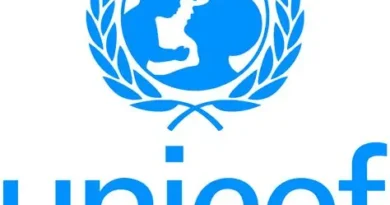Nigeria’s Silent Weight Loss Crisis: The High Cost of Chasing Slimness
 Nigeria’s Silent Weight Loss Crisis: The High Cost of Chasing Slimness
Nigeria’s Silent Weight Loss Crisis: The High Cost of Chasing Slimness
Weight loss has quietly grown into a public health crisis in Nigeria. Across cities and rural towns, men and women are turning to extreme and often dangerous methods to lose weight rapidly. The pressure comes from every angle social media, celebrity culture, and a changing perception of beauty that now equates slimness with success and desirability.
In the past, fuller bodies were celebrated as a sign of health, wealth, and fertility. Today, the ideal has narrowed, driven by influencers and Westernized beauty standards. Labels like “snatched waist” and “figure 8” dominate conversations, pushing many into unsafe weight loss practices that often do more harm than good.
The Rise of Unsafe Weight Loss Products
Slimming teas, diet pills, and herbal mixtures are flooding the market, mostly sold by unregulated vendors online. These products promise quick results but often contain harmful substances linked to heart problems and organ damage.
In March 2024, a young Lagos influencer collapsed during a photoshoot. Doctors traced her condition to a toxic weight loss pill imported from Asia. Despite warnings from health authorities, the underground trade of these products thrives due to weak border control and poor enforcement.
A similar danger lurks in the popular herbal “agbo” drinks sold in markets. Often mixed with diuretics and laxatives, they can trigger severe dehydration, kidney failure, and electrolyte imbalance.
Fasting and Starvation Diets
Religion has also intersected with dangerous weight loss trends. Some individuals now embark on prolonged fasting, partly for spiritual reasons but largely to lose weight fast.
One banker in Enugu collapsed after attempting a 40-day dry fast for “weight loss and spiritual cleansing.” Another young man shared how a 19-day water fast left him fainting at work and battling nutrient deficiencies, all because he wanted a flatter stomach.
Nutrition experts warn that while supervised intermittent fasting can be safe, long-term starvation is a ticking time bomb. Without proper nutrients, the body weakens, vital organs suffer, and recovery can take months.
ALSO READ : Malawi Faith leaders demand clean politics in Upcoming General Election
Exercise, Mental Health, and Eating Disorders
In urban gyms, the pressure to get results quickly is immense. Unqualified trainers push clients beyond safe limits, leading to cases of exhaustion, hormonal imbalance, and exercise-induced hospital admissions that have risen by over 30% in recent years.
Meanwhile, eating disorders such as anorexia and bulimia, once believed rare in Nigeria, are increasing. Yet, stigma and cultural silence mean most cases go untreated. Mental health professionals say the obsession with body image is now one of the leading triggers of anxiety and depression among young Nigerians.
Cosmetic Surgery: The Deadly Shortcut
Cosmetic surgery is booming in cities like Lagos and Abuja, with procedures such as liposuction and Brazilian Butt Lifts (BBLs) in high demand. But the rise in botched surgeries is alarming. At least 14 deaths between 2021 and 2024 were linked to poorly performed procedures in underqualified clinics.
Many women are willing to risk their lives and even go into debt to attain the “perfect body.” Some borrow money or enter exploitative relationships just to afford slimming products or cosmetic surgeries that often leave devastating consequences.
Regulation and Responsibility
Despite repeated warnings from NAFDAC, fake and harmful slimming products continue to flood the market. Influencers advertise unverified teas and pills daily with little to no consequences. Hospitals are overwhelmed with cases of organ damage, yet shame keeps victims from speaking up.
Society’s fat-shaming culture fuels the crisis. In workplaces, schools, and even social gatherings, weight gain is publicly criticized, making people desperate for quick fixes at any cost.
The Safer Path to Weight Loss
Health experts insist sustainable weight loss must be gradual. A daily calorie deficit, balanced diets rich in local foods, regular exercise, and mental wellness support are key to healthy weight management.
Public health officials are calling for stricter regulation of weight loss products, nationwide awareness campaigns, and better access to qualified nutritionists. Experts also stress that beauty should not come at the cost of health or life.
Until the weight loss conversation in Nigeria shifts from quick fixes to safe, long-term solutions, the silent epidemic will keep claiming victims physically, mentally, and financially.
CONTENT CREDIT : BLESSING DADA
IMAGE CREDIT : GOOGLESEARCH.COM




